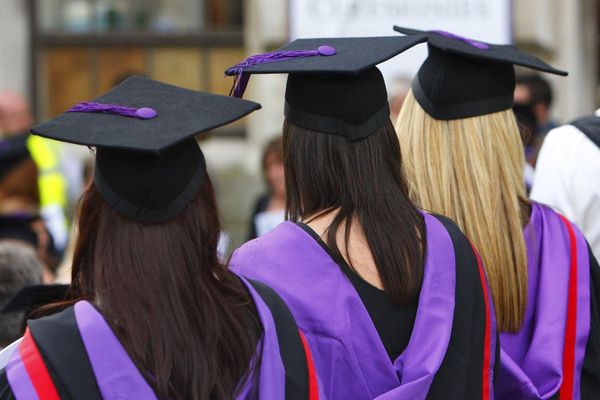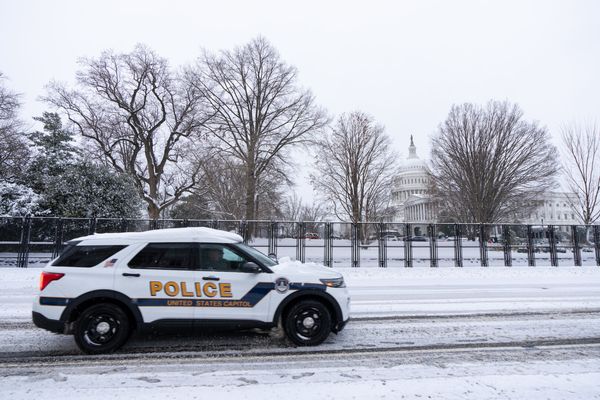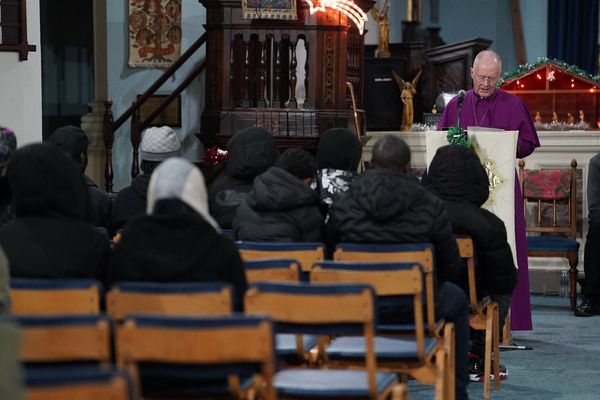
Every time physical force was applied to the prisoner lying naked and handcuffed on the floor of a Victorian prison, the officer appeared to cough.
The Independent Broad-based Anti-Corruption Commission (IBAC) later found the officer was “appearing to intentionally interfere” with the body-worn camera they were wearing.
The case typifies the problems behind the use of body-worn cameras as a tool of accountability for police and other authority figures.
The Victorian government handed near-total control of the cameras and the footage they captured to the police. There have been multiple incidents of cameras not being turned on when they should have been and of footage being tampered with. There is practically non-existent monitoring of their use and there have been difficulties accessing footage to make a complaint against the police.
When police body-worn cameras were rolled out in Victoria four years ago, there were widespread hopes they would improve accountability and help address misconduct. The state government said the cameras would “help to improve transparency and accountability” and that police officers would be “more accountable in their interactions with the public”.
Legal organisations and human rights groups shared these hopes. But in the years since, they have been dashed. A recent Victorian auditor-general report found that across a month of analysis officers didn’t turn on their cameras in 15% of circumstances they were meant to.
The Victorian children’s commissioner also recently found that emergency response staff accused of assaulting children at the Grevillea youth justice precinct had deactivated the cameras before entering the cells, something Police Accountability Project principal solicitor Gregor Husper says he regularly encounters when working with clients alleging police misconduct.
“We have quite a number of clients coming to us alleging assaults or misconduct, and we find out that the body-worn camera wasn’t activated, in complete contravention to even the very lax guidelines that police are under,” he says. “It hasn’t proved to be an effective tool for people making allegations of police misconduct or excessive use of force.”
A recent report by Liberty Victoria’s Rights Advocacy Project identified numerous issues with the way body-worn cameras are operated and monitored in Victoria, and put forward a series of recommendations.
Katherine Schofield, one of the authors of the project’s report, says there is too much discretion handed to police for the use of these devices, which serves to “undermine” their contribution to accountability.
“There’s no real accountability that’s been granted by having body-worn cameras introduced to their arsenal,” Schofield says. “How can there be when they are the ones with it in their hands? There can’t be effective accountability if it is determined by Victoria Police and it’s meant to be holding Victoria Police accountable.”
The operation of the cameras is “almost solely” governed by internal Victoria Police guidelines, the report found.
Victoria Police says there are “stringent measures” in place around the use of body-worn cameras.
“[The cameras] not only improve community and police safety but enhance oversight of police conduct through the provision of objective audio and video evidence,” it said.
The Victoria Police manual includes an activation framework for the cameras, stating that officers are expected to record most operational incidents during a shift. Cameras are to be turned on when a member is exercising legislative or common law powers, or to capture an incident that is occurring, likely to occur or which has occurred.
The Liberty Victoria report recommended legislation be introduced to enshrine in law the circumstances where an officer is required to activate their camera.
“If it’s only in the hands of the police and all the decisions are made by them, then the benefits the cameras are supposedly meant to be imparting will only be in the hands of the police. They won’t be benefiting the community at all,” Schofield says.
Should police officers be obliged to turn on body-worn cameras every time they engage with the public? Let us know your thoughts by writing to letters@crikey.com.au. Please include your full name to be considered for publication. We reserve the right to edit for length and clarity.







